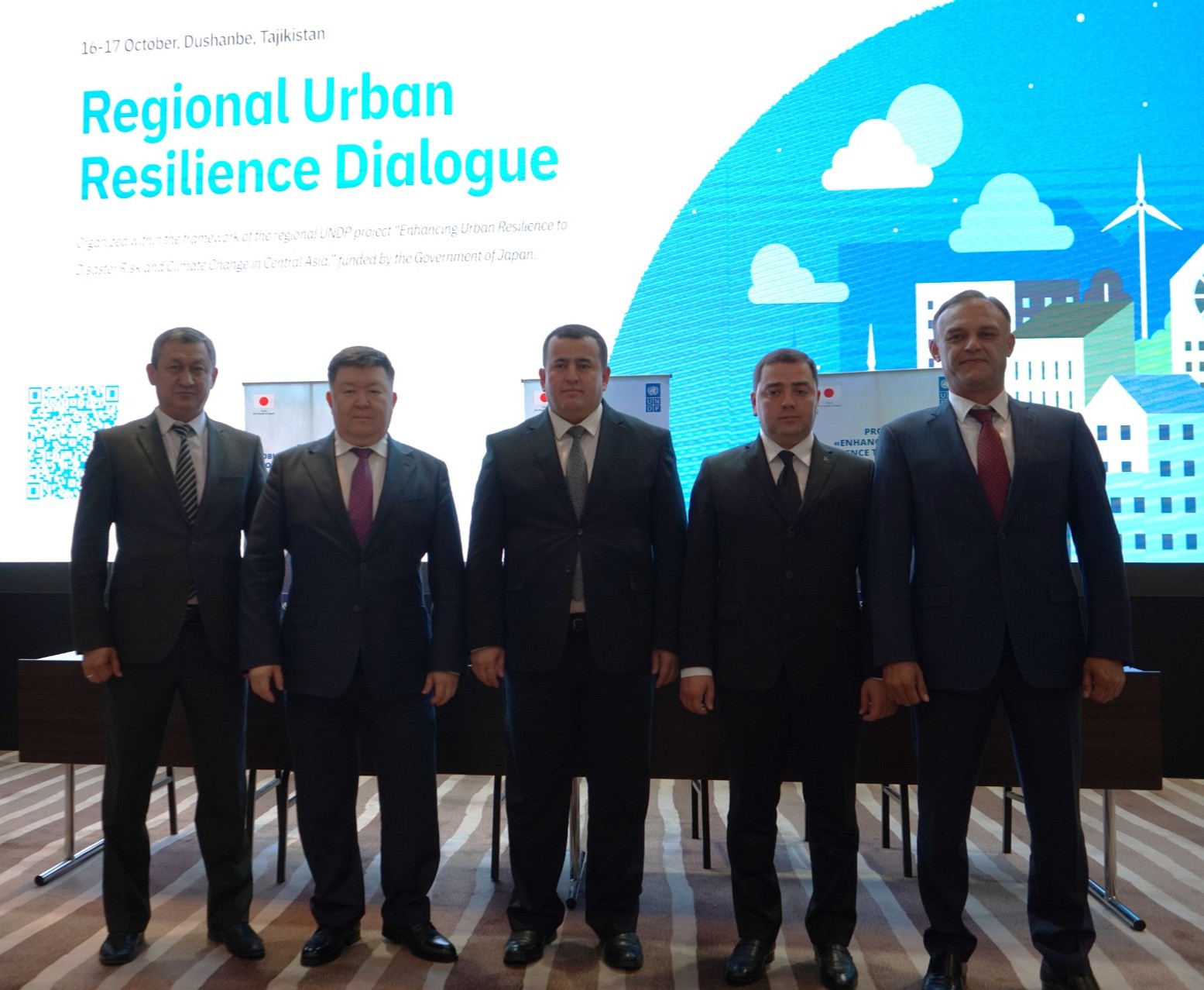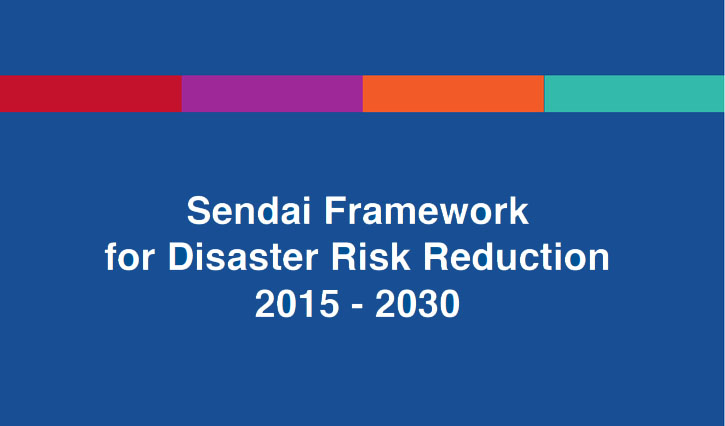A series of key events held as part of the Regional Forum – Meeting of the Heads of Emergency Authorities of Central Asian countries
On 16 October, as part of the Regional Forum – Meeting of the Heads of Emergency Authorities of Central Asian countries, a series of significant activities took place, focused on strengthening regional cooperation in sustainable development and disaster risk reduction.
One of the highlights was the Regional Dialogue on Urban Resilience, organized by UNDP in partnership with the Center for Emergency Situations and Disaster Risk Reduction (CESDRR), the UN Office for Disaster Risk Reduction (UNDRR), and the Government of the Republic of Tajikistan. The dialogue brought together experts and municipal leaders to discuss urban risk assessments, planning tools, and regional methodologies for building safer and more resilient cities.
At the conclusion of the dialogue, city leaders from Kazakhstan, Kyrgyzstan, Tajikistan, Turkmenistan, and Uzbekistan signed a Joint Declaration establishing the Regional Coalition for Urban Resilience, a new platform to foster knowledge exchange and joint action to reduce climate and disaster risks across the region
The Coalition brings together five pilot cities: Petropavlovsk (Kazakhstan), Osh (Kyrgyzstan), Dushanbe (Tajikistan), Ashgabat (Turkmenistan), and Namangan (Uzbekistan). The initiative is being implemented under a regional UNDP project with support from the Government of Japan, aligned with the Regional Strategy for Cooperation in Disaster Risk Reduction in Central Asia (2022–2030).
Participants shared practical tools, city risk profiles, and innovative solutions for integrating disaster risk reduction and climate change adaptation into urban development planning. The event also featured a session on Japan’s experience in sustainable urban development and a technical discussion on the use of artificial intelligence for resilient cities
The Joint Declaration reflects a shared commitment among the participating cities to strengthen regional cooperation, promote inclusive planning, and build long-term urban resilience, contributing directly to the implementation of the Regional Strategy for Disaster Risk Reduction in Central Asia (2022–2030).
Another key event of the day was the Regional Partners’ Meeting on Early Warning Systems and the Early Warnings for All (EW4All) Initiative, which gathered representatives of Central Asian governments, UN agencies, and international and financial organizations.
Discussions focused on the progress of the EW4All initiative, the development of multi-hazard early warning systems, and the identification of investment opportunities to ensure that every person in Central Asia is protected by early warning systems by 2027.
The meeting was jointly organized by UNDRR and GIZ, in cooperation with the Committee for Emergency Situations and Civil Defense under the Government of the Republic of Tajikistan and CESDRR, with support from the Governments of Switzerland and the United Kingdom.
The day concluded with a meeting of the Regional Forum’s Expert Working Group, during which experts from Central Asian countries reviewed and endorsed a number of draft documents to be submitted for approval by the heads of emergency agencies. These documents were developed based on national needs and regional priorities, and aim to strengthen cooperation in disaster risk reduction and improve preparedness for transboundary emergencies across Central Asia.
- Protocol on intentions regarding the establishment of a regional early warning system for hydrological disasters and mechanisms for information exchange on hazardous hydrometeorological phenomena, the impact factors of which may extend to the territory of other countries;
- Protocol on intentions to improve the sustainability of cities in Central Asian countries to disaster risk and climate change;
- Joint Declaration on the establishment of the Regional Coalition of Resilient Cities of Central Asia (signed by municipal leaders from across the region).






























